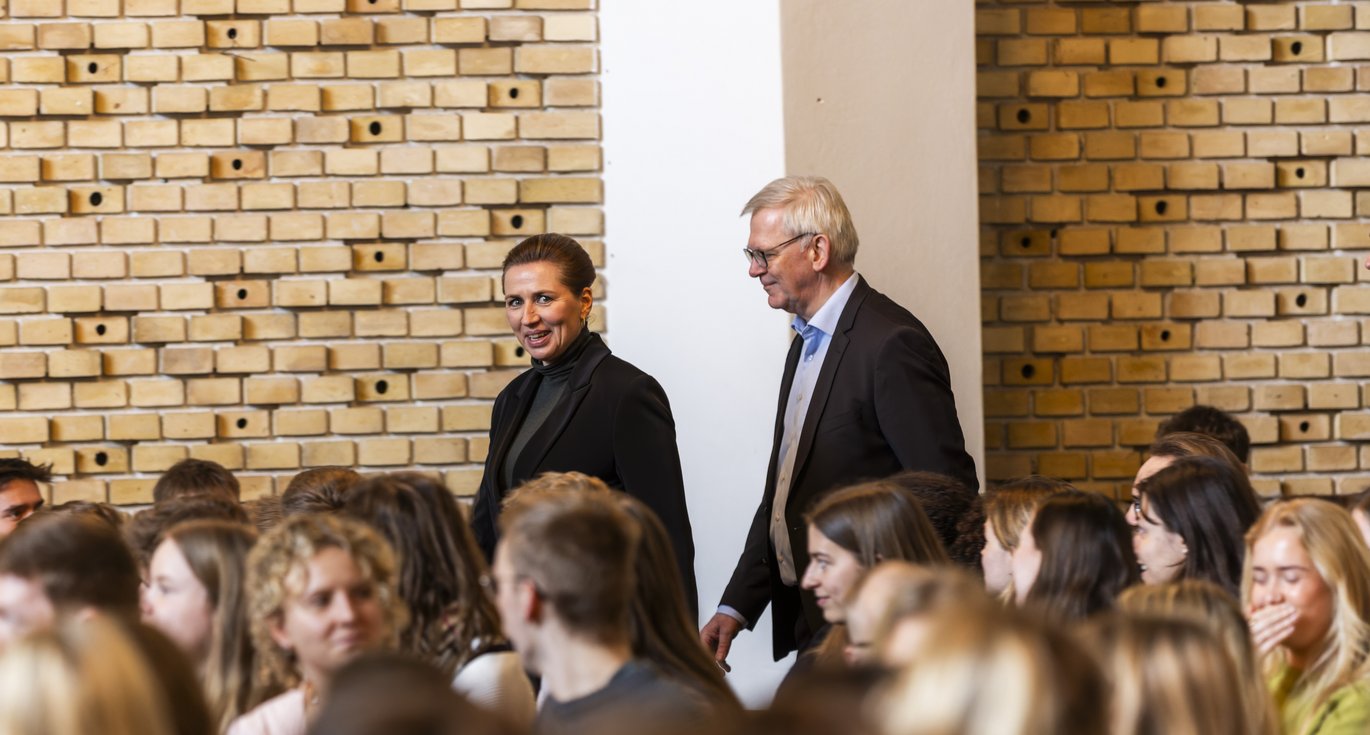The Prime Minister doesn't want 'prayer rooms' at universities, but how about AU’s 'quiet rooms'?
The government doesn't want prayer rooms at the country's universities, Prime Minister Mette Frederiksen stated on Danish Constitution Day. However, that statement won't have any consequences at Aarhus University, which will keep its five quiet rooms. The Minister of Education expects universities to intervene if religious preaching or social control occurs.

On Constitution Day, Prime Minister Mette Frederiksen (Social Democrats) made it clear what she and the government think about prayer rooms at Danish universities: They should be closed.
"It's not a discussion about whether we want it or not. We are actively taking a position that we don't want that," she told Ritzau.
However, the government will not legislate on it. And since the rooms at the country's universities are called 'quiet rooms', 'reflection rooms' and 'contemplation rooms' - but not officially 'prayer rooms' - the message from the Prime Minister has caused some to wonder. Does this mean that the government thinks AU should close its quiet rooms?
In a written response to Omnibus, Minister for Higher Education and Science Christina Egelund (Moderates) explains that no religious preaching or social control is allowed in the rooms, but praying in them is still permitted.
"The government will not be introducing a state ban on prayer rooms at the country's educational institutions. What we are emphasising is that religious preaching and social control have no place in our educational institutions. We therefore also expect institutions that choose to have reflection rooms or quiet rooms ensure that the rooms are not used for preaching or social control. We expect educational institutions to act and follow up if they discover preaching or social control within their programmes. This is one of the things we have also seen University of Southern Denmark do," the minister says.
In February, University of Southern Denmark temporarily closed its reflection room until 1 September, as the room had been decorated with effects that made it appear non-neutral.
AU: The guidelines for the use of quiet rooms are unchanged
The latest reports do not change anything at Aarhus University. When asked whether AU will keep its quiet rooms and whether people can still pray in them, AU's rector, Brian Bech Nielsen, responded in writing:
"The guidelines for the use of quiet rooms at Aarhus University are unchanged. As before, users of the rooms can immerse themselves, meditate or pray a personal prayer," the rector responded.
AU currently has five quiet rooms, according to the university itself. They are located in premises in the Student House Hus, Navitas, the University Park, Campus Emdrup and Katrinebjerg.
On 10 June, during P1 Debat – a Danish radio programme – Minister for Higher Education and Science Christina Egelund suggested that this was merely a semantic debate. Most rooms used for prayer at universities are not referred to as 'prayer rooms' but as 'quiet rooms', 'reflection rooms' and 'contemplation rooms'.
"Prayer rooms, if you want to think in black and white, no universities or other educational institutions have them. They have what they call quiet rooms, contemplation rooms, reflection rooms. And the second they are used as prayer rooms, we don't think they should be there," said Egelund, who did not elaborate on when a room becomes a prayer room.
Universities call it quits
It's not just AU that's turning a blind eye to Mette Frederiksen's statements from Constitution Day. The government is "kicking in an open door," DTU Rector Anders Bjarklev told DR, while UCPH Pro-rector Kristian Lauta told the University Post that he does not feel "that we have prayer rooms at the University of Copenhagen.” They point out that universities are already aware that the spaces should not be used for religious preaching or social control. And that the universities have created guidelines to prevent this from happening. This has been announced by the eight universities' liaison committee organisation, Universities Denmark, which is led by AU Rector Brian Bech Nielsen.
Universities Denmark: “Quiet rooms may be permanently closed if not kept neutral”
"No action. Deeply disappointing"
The government's announcements have been met with criticism from parts of the opposition.
"All right-wing parties and even the Socialist People’s Party are ready to ban prayer rooms. The only people standing in the way of a ban now are the government. But good luck with your dialogue and circles," wrote Susie Jessen, political spokesperson for the Danish Democrats, on X on 16 June.
On 5 June, Socialist People’s Party’s spokesperson for immigration and integration, Mads Olsen, wrote on X after the Prime Minister's statements:
"The government apparently won't ban prayer rooms even though we see them becoming an extension of orthodox Islam in terms of gender segregation and social control! Instead, it turns into roundtable talk and “dialogue” with the universities. No action. Deeply disappointing."
Minister on new quiet room at AU: "Generally, I think it's a bad idea"
Earlier this year, both the Danish People's Party (DF) and the Danish Democrats (DD) proposed resolutions to ban prayer rooms at educational institutions. The Danish Democrats' proposal was put to the vote in the Danish parliament on 27 May. Danish Democrats, Liberal Alliance, Conservatives, and DF voted in favour, while Social Democrats, Danish Liberal Party, Moderates, Red-Green Alliance, Danish Social Liberal Party, and Next Denmark voted against. The Socialist People’s Party abstained from voting in favour or against.
This text is machine translated and post-edited by Cecillia Jensen

